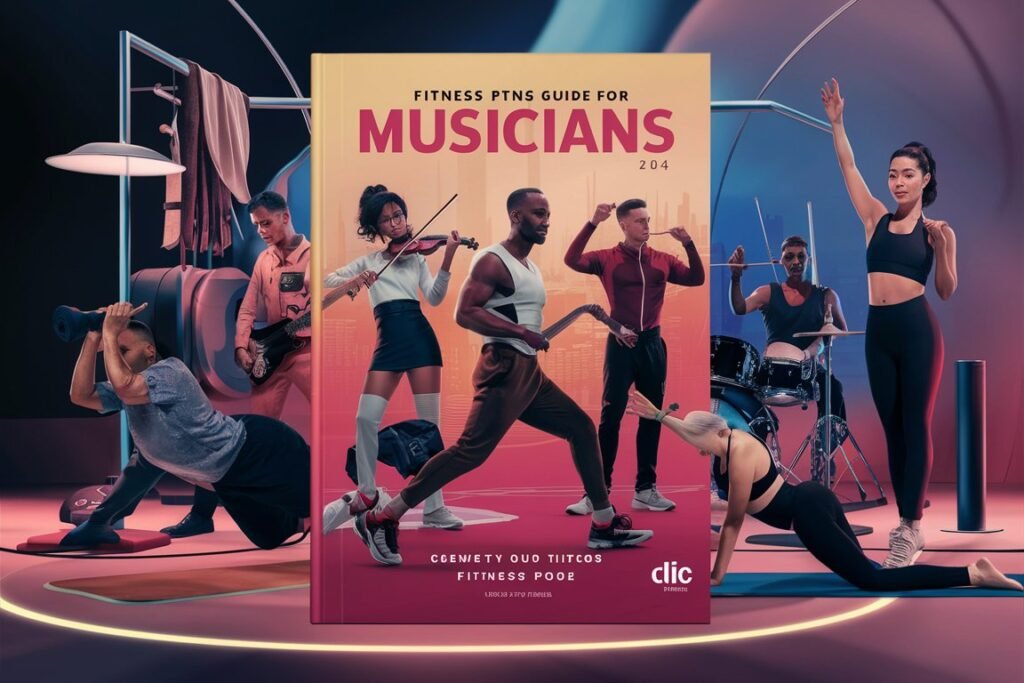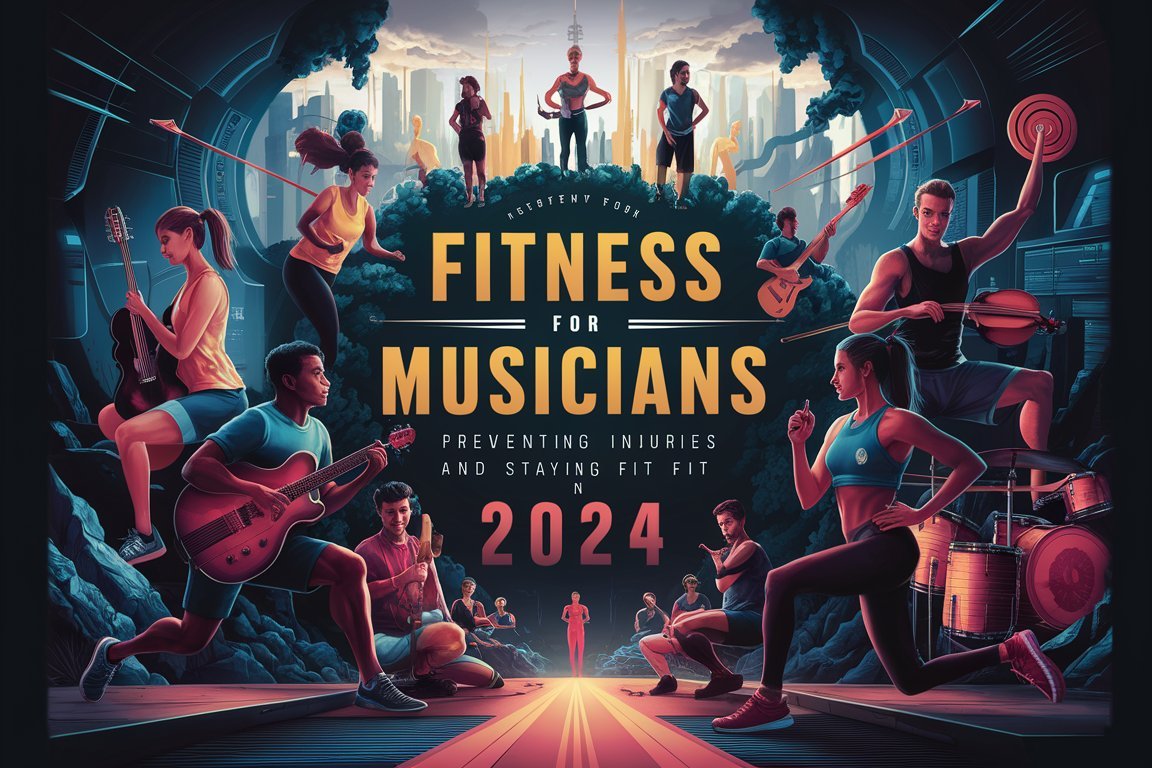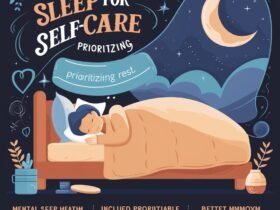Fitness for Musicians: Preventing Injuries and Staying Fit in 2024
Hey there, all you rockin’ musicians out there! Are you ready to take your performance to the next level? I know, I know – when you’re busy shredding on your guitar or belting out high notes, fitness might not be the first thing on your mind. But trust me, taking care of your body is just as important as taking care of your instrument.
As a musician, you put your body through a lot. Long rehearsals, late-night gigs, and hours of practice can take a toll on your muscles, joints, and overall health. And if you’re not careful, you could end up with some serious injuries that could sideline you from the stage.
But fear not, my musical friends! In 2024, there are more ways than ever to stay fit, prevent injuries, and keep rocking out for years to come. So grab your water bottle and your favorite playlist, and let’s dive into the world of fitness for musicians!
Why Fitness Matters for Musicians
Before we get into the nitty-gritty of how to stay fit as a musician, let’s talk about why it matters in the first place. I mean, you’re not an athlete, right? You’re an artist, a creator, a master of your craft. So why should you care about fitness?
Well, here’s the thing: as a musician, your body is your instrument. Just like you need to take care of your guitar or your drums, you need to take care of your physical health if you want to perform at your best.
Think about it – when you’re on stage, you’re not just playing music. You’re moving around, jumping, dancing, and putting your body through all sorts of physical demands. And if you’re not in good shape, all of that movement can lead to injuries, fatigue, and even long-term health problems.
Plus, being fit can actually make you a better musician. When you’re in good physical condition, you have more energy, more stamina, and more mental clarity – all of which can help you play better, sing better, and connect with your audience more deeply.
So, whether you’re a solo artist or part of a band, whether you play classical music or heavy metal, fitness is an essential part of your musical journey. And the good news is, it doesn’t have to be a chore – with the right mindset and the right tools, staying fit can be a fun and rewarding part of your creative life.
Common Injuries and Health Issues for Musicians
Okay, so we know that fitness is important for musicians – but what exactly are we trying to prevent? What are the most common injuries and health issues that musicians face, and how can we avoid them?
Well, buckle up, because the list is pretty long. Here are just a few of the most common problems that musicians encounter:
Repetitive Strain Injuries (RSIs)
If you play an instrument that requires a lot of repetitive motion – like piano, guitar, or drums – you’re at risk for repetitive strain injuries. These injuries happen when you overuse certain muscles or tendons, leading to pain, inflammation, and even long-term damage.
Some common RSIs for musicians include:
- Carpal tunnel syndrome (pain and numbness in the wrist and hand)
- Tendonitis (inflammation of the tendons in the wrist, elbow, or shoulder)
- Bursitis (inflammation of the fluid-filled sacs that cushion your joints)
To prevent RSIs, it’s important to take frequent breaks, stretch your muscles, and use proper technique when playing your instrument. More on that later!
Back and Neck Pain
If you play an instrument that requires you to sit or stand for long periods of time – like cello, double bass, or harp – you’re at risk for back and neck pain. This is especially true if you have poor posture or don’t use proper ergonomics when playing.
To prevent back and neck pain, it’s important to maintain good posture, use a supportive chair or stand, and take frequent breaks to stretch and move around.
Hearing Loss and Tinnitus
As a musician, your ears are your most valuable asset – but they’re also at risk for damage from loud noise. If you’re exposed to high decibel levels for long periods of time (like at a rock concert or in a recording studio), you could develop hearing loss or tinnitus (ringing in the ears).

To protect your hearing, it’s important to wear earplugs or noise-cancelling headphones when playing or practicing, and to take frequent breaks in a quiet environment.
Performance Anxiety and Stress
Finally, let’s not forget about the mental and emotional toll that music can take. As a performer, you’re under a lot of pressure to deliver your best every time you step on stage. And that pressure can lead to performance anxiety, stress, and even burnout.
To manage performance anxiety and stress, it’s important to take care of your mental health as well as your physical health. That means getting enough sleep, eating a healthy diet, and finding ways to relax and unwind when you’re not performing.
Practical Tips for Staying Fit as a Musician
Alright, so now that we know what we’re up against, let’s talk about how to stay fit and prevent injuries as a musician. Here are some practical tips to keep in mind:
Warm Up and Cool Down
Just like athletes, musicians need to warm up their muscles before playing and cool down afterwards. This helps prevent injuries and improve performance.
A good warm-up routine might include:
- Gentle stretches for your hands, wrists, arms, and shoulders
- Deep breathing exercises to relax your body and mind
- Playing scales or arpeggios to get your fingers moving
And a good cool-down routine might include:
- More stretches to release tension in your muscles
- Massaging your hands and forearms to improve circulation
- Taking a few minutes to sit or lie down and relax
Use Proper Technique
One of the biggest risk factors for injuries in musicians is improper technique. If you’re not using the right posture, hand position, or breathing technique, you could be putting unnecessary strain on your muscles and joints.
To use proper technique, it’s important to:
- Sit or stand with good posture, with your shoulders back and your spine straight
- Keep your wrists straight and your elbows relaxed when playing
- Use a light touch on your instrument, and avoid gripping too tightly
- Breathe from your diaphragm, not your chest, to support your sound
If you’re not sure if you’re using proper technique, consider taking lessons from a qualified instructor or attending a workshop on musician wellness.
Take Frequent Breaks
As a musician, it’s easy to get caught up in the flow of playing and forget to take breaks. But taking regular breaks is essential for preventing injuries and maintaining your physical and mental health.
A good rule of thumb is to take a 5-10 minute break for every 30 minutes of playing. During your break, you can:
- Stretch your muscles
- Walk around and get some fresh air
- Drink water and eat a healthy snack
- Rest your eyes and ears in a quiet environment
Stay Hydrated and Eat a Healthy Diet
What you put into your body has a big impact on your physical and mental performance as a musician. That’s why it’s important to stay hydrated and eat a healthy diet.
Aim to drink at least 8 glasses of water per day, and more if you’re sweating a lot during performances or rehearsals. And try to eat a balanced diet that includes plenty of fruits, vegetables, whole grains, and lean proteins.
Avoid sugary or fatty foods before performances, as they can make you feel sluggish and affect your energy levels. Instead, opt for snacks like fresh fruit, nuts, or whole grain crackers.
Incorporate Cross-Training into Your Routine
As a musician, it’s important to focus on your craft and practice regularly. But it’s also important to incorporate other forms of physical activity into your routine to stay fit and prevent injuries.
Cross-training activities like yoga, Pilates, or swimming can help improve your flexibility, strength, and endurance, all of which can benefit your playing. Plus, they can give you a mental break from the demands of music and help you relax and recharge.
Aim to incorporate at least 30 minutes of cross-training activities into your routine 2-3 times per week. And don’t be afraid to try new things – you might just discover a new passion that complements your music!
The Future of Musician Wellness: Trends and Technologies in 2024
As we look ahead to 2024 and beyond, there are some exciting trends and technologies on the horizon that could help musicians stay fit, prevent injuries, and perform at their best. Here are a few to keep an eye on:
Wearable Technology for Musicians
Just like athletes use wearable devices to track their fitness and performance, musicians may soon have access to similar technology designed specifically for their needs.
Imagine a wearable device that could track your hand etc.












Leave a Reply